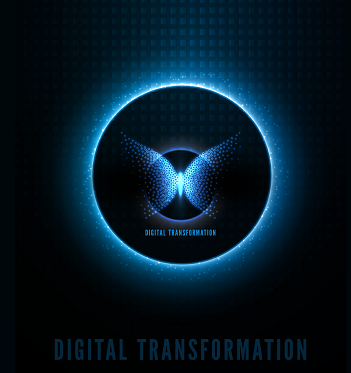Digital Transformation – Change Makers Reimagining Education
Continuing with our coverage of Digital Transformation of education we bring you the seventh column by our entrepreneur Roshini Kumar

By Roshini Kumar
The pandemic has disturbed all sectors of society and revealed its fault lines—especially in our education systems. The reaction to the crisis has generated some impressive responses on the part of individuals and small groups as educators have stepped up to serve their communities. In some cases, public and private partnerships have filled the gaps. Some systems have been able to rapidly deliver remote learning experiences, but most have struggled with meeting the needs of all. Equity, access and capacity left wanting. Prior to the pandemic, many education systems were stalled, the pandemic exposed the case that fundamental changes are needed.
Through this disruption, there has been a recognition that schools play a vital role beyond learning. Their custodial and community roles are central to a healthy society. As we grapple with the issues of reopening schools in this uncertain time, we must seize the opportunity to reflect on what has been learned, and what matters most.
The challenges highlighted during the disruption should not come as a surprise. Over the last decade, student engagement has plummeted.
1 Almost one in every five students does not reach a basic minimum level of skills to function in today’s society (OECD) Moreover, many school systems have not maintained pace with technological advances; schools have not provided widespread access to digital tools. When the pandemic hit, 1 in 5 students did not have access to the internet or a device to support them in lockdown.
2 This disruption revealed systems that already struggled to support all learners. To put it plainly: it’s time to situate education as an instrument of individual and societal good.
How will we choose to respond? Will we patch together a reaction, or use this opportunity to transform the system itself? The question becomes, what will be more appealing – reverting to the status quo or using the opportunity to help students become knowledgeable and skilled change makers through deeper learning? We argue that the solutions lie before us. We have the opportunity to creatively manage the immediate issues while building a bridge to a reimagined education system.
CRISIS: TEACHERS LEADING & REIMAGINING THE FUTURE
In 2020, World Teachers’ Day celebrated teachers with the theme “Teachers: Leading in crisis, reimagining the future”. Post COVID-19 pandemic, the world is at crossroads and over-extended education systems throughout the world must work with teachers (as the focal point) to protect the right to education and guide it into the unfolding digital landscape brought about by the pandemic. Teachers made significant contributions to provide remote learning, support vulnerable populations, re-open schools, and ensure that learning gaps have been mitigated. At its peak, the recent COVID-19 pandemic and associated school closures directly affected 250 million students at all levels and 9.5 million primary and secondary teachers. In many cases, teachers were required to conduct online learning but lacked basic ICT tools in their own homes. In many places teachers also found themselves unable to continue education because many households lacked the technology and connectivity to allow students to learn online. Globally, for instance, approximately 50% and 43% of learners, respectively, lack computers or the internet in the home.
Formal education should be saved by training and empowering teachers in digital skills. The failure of formal education would have deep impact on our human capital.
Traditional school should be transformed into digital school. Training in digital technology must be imparted to school managements, principals, teachers and parents to handle the new paradigm. Each stakeholder of education must trained on how to handle the new way of learning.
The teachers must be continuously trained and certified in digital teaching skills and a social learning platform must be created for teachers to learn from each other on how to use technology in education.
The schools who have adopted “Digital Transformation” and successfully transformed from a four walls of the classroom to digital learning space should be known as the “Connected Learning Community” learning environment for the “Knowledge Age”.
Since time immemorial change is the only constant. Whoever doesn’t adapt to change shall plummet into stagnation. Digital Transformation of Education is a conclusive reality since the last two decades and has been fast forwarded by the ongoing Pandemic. Indisputably the primary caregivers to children’s holistic life’s learning after their parents are the teachers. It is they who mould young impressionable minds to think intelligently, handing them the priceless gifts of knowledge and wisdom that amply equip them to lead their lives as successful adults in their respective professional fields in the future. And now they have taken the heavy mantle of educating the students in a ‘Connected Learning Community’ forgoing the traditional methods of teaching, thereby revolutionizing the whole Education System. The guiding force behind a successful institution is the leader ‘the Principal”. The Principal handholds the teachers, gives vision to the organization, nurtures the children and manages the expectation of parents.
It is was wonderful to see Tech Avant-Garde, Knowledge L’avenir in association with Microsoft and Rotary acknowledging fifty four Principals as the ‘Change Maker’-
Amidst a spirit of elation, the Principals were acknowledged, celebrated and applauded for their selfless and sincere service to the fruition of the dream of Digitalization of Formal Education. Each Principal articulated their school’s transforming digital journey to make ‘Connected Learning Community’ into a palpable reality. They set a shining example and imparted true inspiration to other Principals of Educational Institutions across the length and breadth of the nation, by guiding and handholding teachers and students alike to administer critical knowledge and wisdom, paving the way ahead into a brightly lit exciting future. The organizers were convinced that with Principals plunging into the fray, others will readily follow and put India on the map, at par with global education, especially now more than ever with the Pandemic looming large over our heads.
Certain select Principals were from schools that were honored with Carte Blanche Digital School graduation at a special function held in November 2020. These schools have subscribed towards the Digital Transformation and Holistic Learning Program (DTHL); where the school teachers have been trained in Digital Teaching; where the school is conducting online classes daily for all grades; where teachers are MIE (Microsoft Innovator Educator) certified and where teachers have trained the participants in the Knowledge L’avenir Conclave Webinars. The DTHL Coordinators are awarded with Digital Catalyst Certification; Knowledge L’avenir Conclave presenters are awarded with Adroit Mentor Certification; Teachers with digital skills are presented with Empowered Educator Certification; Students are presented with Connected Learner Certification and Parents are presented with Participative Parent Certification. Schools are also eligible to become Microsoft Showcase Schools. And in addition teachers who have given presentations in Knowledge L’avenir Conclaves are trained to become MIE Trainers.
“The future belongs to those who believe in the beauty of their dreams.”
This is the beginning of a new dawn Education Reimagined | The Future of Learning
The Change Makers have adopted new approach which enables well-being, equity and quality (deep) learning to flourish. In order to realize such improvement, it is imperative to embrace an innovative mindset. We will need to be open to rethinking and creating a powerful new future that meets everyone’s needs.
Send your feedback to me on why we should acknowledge principals as “Change Makers” and how important they are to our learning ecosystem in the new paradigm of Education the “Connecting Learning Community”.

ROSHINI KUMAR
Thought Leader –
Digital Transformation
roshinik@lyceecorp.com
You can access previous columns by Roshini Kumar here:
You can read the first column here
You can read the second column here
You can read her third column here
You can read her fourth column here
You can read her fifth column here
You can read her sixthe column here